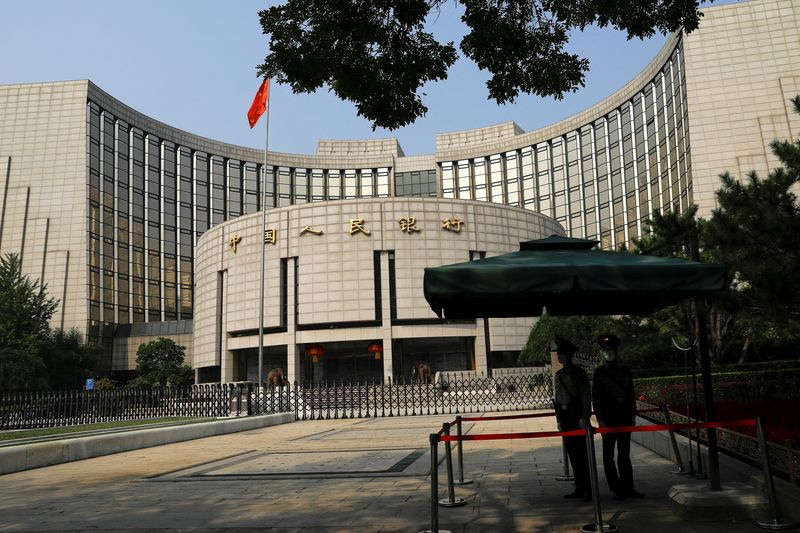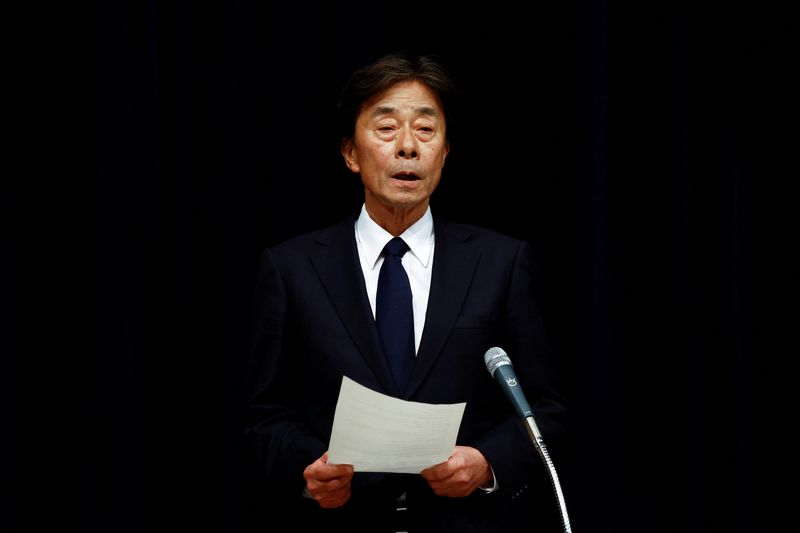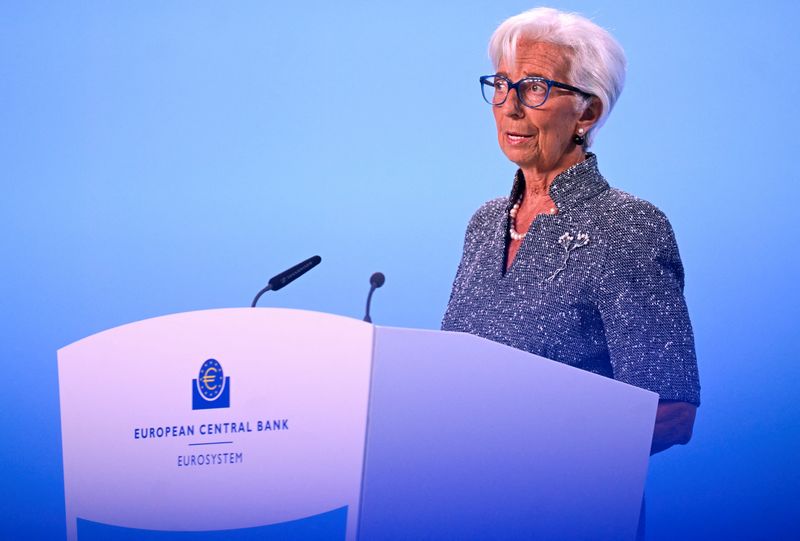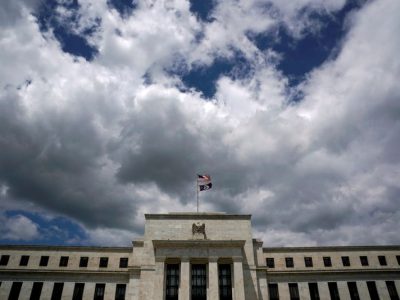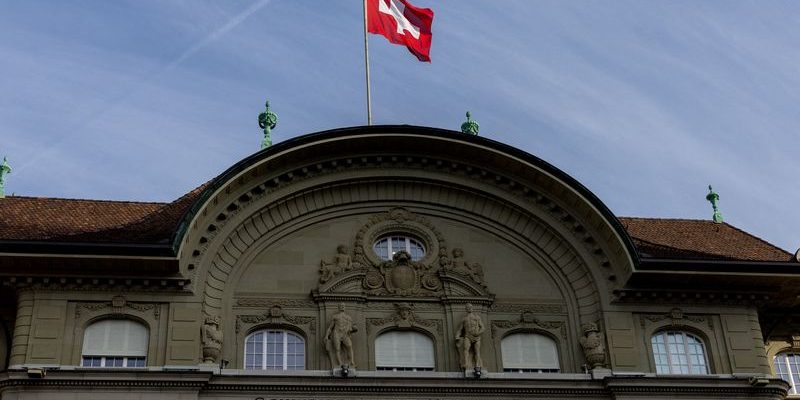
By John Revill
BERN (Reuters) -The Swiss National Bank cut its interest rate by 50 basis points on Thursday, the biggest reduction in almost 10 years as it sought to stay ahead of expected cuts by other central banks and cap the rise of the Swiss franc.
The SNB reduced its policy rate from 1.0% to 0.5%, the lowest since November 2022. While markets had predicted the move, more than 85% of economists polled by Reuters had expected a smaller cut of 25 basis points.
The Swiss franc weakened after the decision, leaving the euro up nearly 0.7% on the day at 0.9339 francs and the dollar up 0.4% at 0.8883 francs. Swiss stocks rallied, pushing the main Zurich index up 0.45% on the day.
The cut is the steepest drop in Swiss borrowing costs since the SNB’s emergency rate reduction in January 2015 when it suddenly quit its minimum exchange rate with the euro.
“With our easing of monetary policy today we are countering the lower inflationary pressure,” the SNB’s new chairman Martin Schlegel told reporters in remarks prepared for the central bank’s press conference on its latest decision.
“We will continue to monitor the situation closely, and will adjust our monetary policy if necessary to ensure inflation remains within the range consistent with price stability over the medium term,” Schlegel added.
Thursday’s decision was the first under Schlegel, and saw an acceleration from the policy of predecessor Thomas Jordan, who oversaw three reductions of 25 basis points this year.
It was made possible by low Swiss inflation, which was 0.7% in November, and has been within the SNB’s 0-2% target range, which it calls price stability, since May 2023.
Schlegel said uncertainty about future price developments was still high as the central bank forecast that Swiss inflation in 2025 would be lower than previously expected.
LOWER RATES ELSEWHERE
The European Central Bank is also expected to cut rates later on Thursday and the U.S. Federal Reserve on Dec. 18.
The Bank of Canada cut its main policy rate by 50 basis points on Wednesday.
Narrowing interest rate differentials between Switzerland and other countries increase the attractiveness of the safe-haven franc, boosting the currency.
The franc’s appreciation is an additional headache for Swiss exporters, making their exports more expensive when they are already facing subdued demand in Europe and China.
“Low inflation and risks to the European economy and thus to the Swiss economy may have been major drivers for this rate cut,” said UBS economist Alessandro Bee.
“Furthermore, by cutting by 50 basis points the SNB is likely to widen the interest rates differential and thereby pre-emptively counter excessive Swiss franc strength.”
The SNB now expects growth of between 1% and 1.5% for 2025. It had previously predicted 1.5% for next year.
For 2024, the SNB sees Swiss prices rising by 1.1%, by 0.3% in 2025 and 0.8% in 2026, compared to its previous inflation forecasts of 1.2%, 0.6% and 0.7%, respectively.
“The SNB softened its forward guidance for possible further cuts. But with the latest move the SNB likely cemented the market expectations for lower rates,” said Alexander Koch, head of macro and fixed income research at Raiffeisen.
“And if the SNB does not deliver at the coming meetings, there is ample potential for renewed franc strength.”


